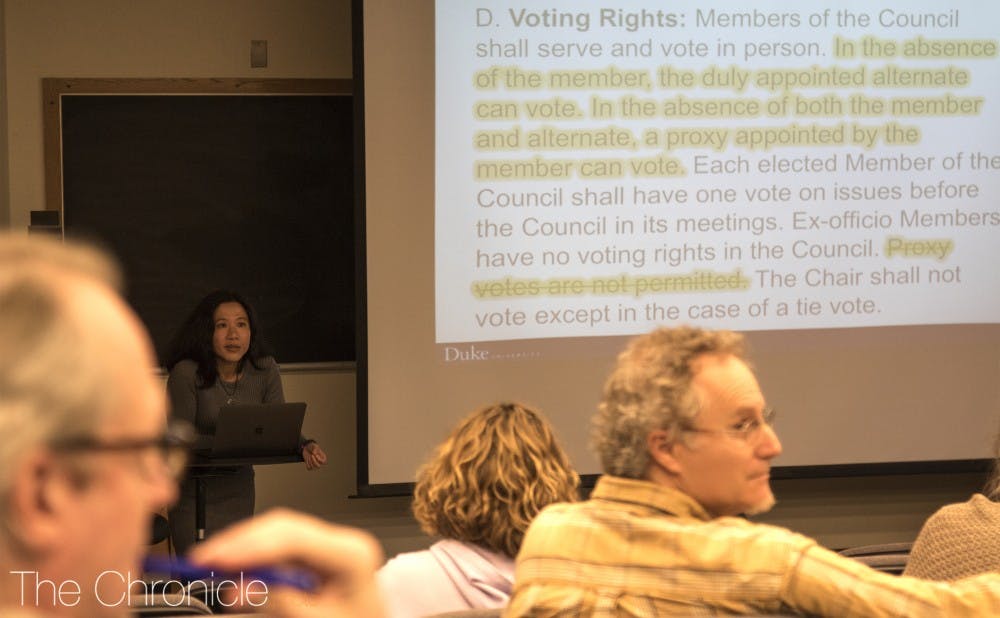Tensions flared at the Arts and Sciences Council meeting Thursday as members debated how the group should establish a faculty committee.
The Committee on Faculty Teaching Development and Support group would "serve as a faculty hub for pedagogical resources at Duke and spark conversations around improving teaching practices across campus."
Some council members raised concerns about the principle of selecting faculty to the committee and how much sway these selected individuals might have on institutional policies. They were assured, however, that the new committee would not engage in decision or rule making, but instead would identify pending resources and advise groups or services on campus to provide them.
There was still suspicion on the underlying purpose of this committee. A council member from the Thompson Writing Program at Duke questioned how the Center for Instructional Technology is being rebranded as the teaching hub, Duke Learning Innovation, and if that change is happening in parallel to the creation of this committee.
He also questioned who would constitute the membership in the proposed committee if these groups were going to be taken up by the same people.
David Malone, professor of the practice of education, recognized that the voice would not likely be coming from faculty. He said the committee would assess itself and report back to the council on current problems and issues with curriculum.
Some members questioned how the faculty committee would be overseen, as well as whether the committee would replace the way course evaluations and faculty award decisions are conducted. As a result of the extensive debate, the initiative ultimately failed.
In other business:
The council also discussed a faculty referendum—in which faculty members at large could affirm or veto votes taken by the council. A vote of general faculty members would ensue if a vote was passed in the council by less than or equal to 60 percent, and if at least 10 percent of faculty members petitioned for such a vote.
Passage of a vote in the council would be nullified if less than half of faculty in the referendum rejected it given that more than 40 percent of faculty participated in the referendum vote.
Members on the council had problems with the political implications the the proposal's wording could have. Other members were suspicious that the resolution was motivated by prospect of the passage of a new curriculum.
Despite discussing potential amendments, the council ultimately agreed that the referendum was one that needed to be “killed” and rewritten. Alex Rosenberg, R. Taylor Cole professor of philosophy, officially proposed voting to reject the faculty referendum, and the majority of the council voted to do so.
The discussion around the potential new committee also raised concerns about Duke's curriculum reform initiative, which is currently on hiatus. Micaela Janan, professor of classical studies, advocated for an open debate on the curriculum and increased information on whether it would be effective to allow for an unbiased outcome without the influence of the Executive Committee of Arts and Sciences Council.
Another council member proposed that solutions to problems with curriculum be brought to the council and not individually emailed to ECASC. The meeting ended without a resolution to the debate, as members agreed to revisit the discussion at a future meeting.
Get The Chronicle straight to your inbox
Signup for our weekly newsletter. Cancel at any time.

